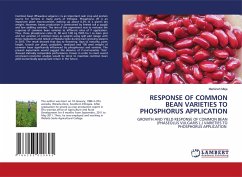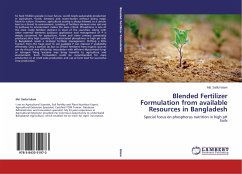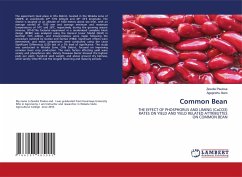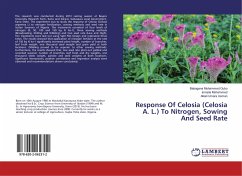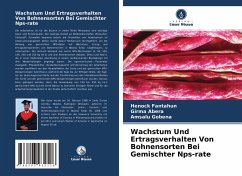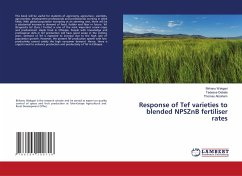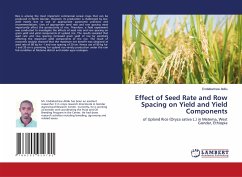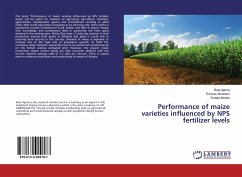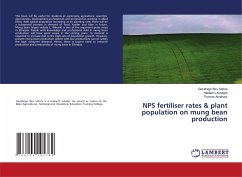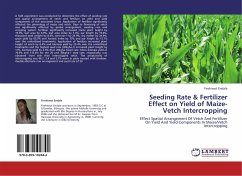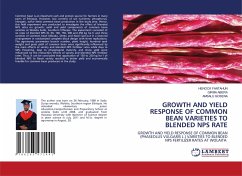
GROWTH AND YIELD RESPONSE OF COMMON BEAN VARIETIES TO BLENDED NPS RATE
GROWTH AND YIELD RESPONSE OF COMMON BEAN (PHASEOLUS VULGARIS L.) VARIETIES TO BLENDED NPS FERTILIZER RATES AT WOLAITA
Versandkostenfrei!
Versandfertig in 6-10 Tagen
27,99 €
inkl. MwSt.

PAYBACK Punkte
14 °P sammeln!
Common bean is an important cash and protein source for farmers in many parts of Ethiopia. However, low content of soil nutrients: phosphorus, nitrogen, sulfur limits common bean production in the study area. Hence, this field experiment was conducted to investigate the effect of blended NPS rates on growth, yield and yield components of common bean varieties at Wolaita Sodo, Southern Ethiopia. The experiment consisted of six rates of blended NPS (0, 50, 100, 150, 200 and 250 kg ha-1) and three varieties of common bean (Ibbado, Dimtu and Nasir) laid out in a factorial arrangement in randomized...
Common bean is an important cash and protein source for farmers in many parts of Ethiopia. However, low content of soil nutrients: phosphorus, nitrogen, sulfur limits common bean production in the study area. Hence, this field experiment was conducted to investigate the effect of blended NPS rates on growth, yield and yield components of common bean varieties at Wolaita Sodo, Southern Ethiopia. The experiment consisted of six rates of blended NPS (0, 50, 100, 150, 200 and 250 kg ha-1) and three varieties of common bean (Ibbado, Dimtu and Nasir) laid out in a factorial arrangement in randomized complete block design with three replications. The agronomic parameters branch number, plant height, hundred seed weight and grain yield of common bean were significantly influenced by the main effects of variety and blended NPS fertilizer rates while days to 50% flowering, days to physiological maturity, and straw yield were influenced by the interaction effects of variety and blended NPS fertilizer rates. Thus, it can be concluded that application of 150 to 250 kg ha-1 of blended NPS to Nassir variety resulted in better yield and economically feasible for common bean producers in the study.



